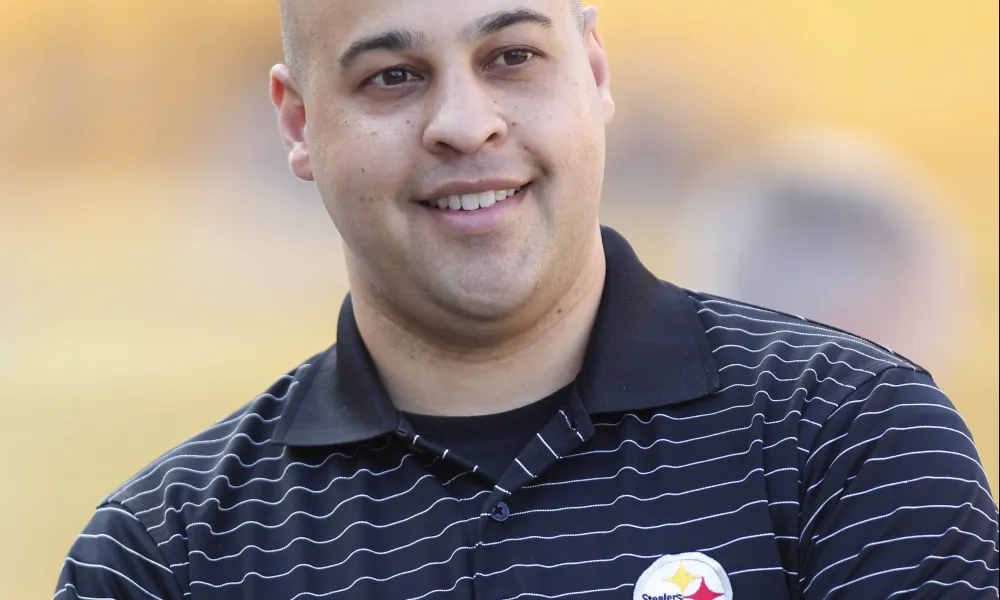PITTSBURGH — He had to ask about three questions before he realized what was happening.
“‘Script’ is your buzzword today,” Pickett said to reporters Wednesday after the Pittsburgh Steelers finished their first practice of the week leading up to Sunday’s game against the Jacksonville Jaguars.
Pickett must not listen to sports talk radio or peruse any Steelers fan sites, especially after coach Mike Tomlin discussed the topic Tuesday during his weekly news conference, saying that scripting the first 15 plays of the game could sometimes be “information gathering.”
That is all well and good, and probably very significant. Until you realize that the Steelers have only scored one offensive touchdown in the first quarter of this season and have not scored an opening-drive touchdown in ten games, going back to 2022. They also have 11 three-and-outs on 17 first-quarter drives and rank 29th in offensive points per game (14.5). So outsiders are looking for answers.
Why is a team that has been so successful in the fourth quarter also so putrid in the first?
It has to be attached to maligned offensive coordinator Matt Canada, right? After Pittsburgh put up 24 points in a road win over the Rams, it all came back around to Canada and the scripting of the first 15 plays, which some Steelers call “openers.That must be where the problem lies. Right?
“We’ve had struggles starting fast, but it has nothing to do with the openers,” quarterback Mason Rudolph said. “It has nothing to do with coaching. It has to do with playing ahead of the chains and execution.”
So, what exactly is scripting, or “openers?”
Tuesday, Tomlin gave a clear explanation of it.
“We’re not completely married to it,” he said. “And no, it’s not always trying to hit a home run. Sometimes it’s information gathering. Sometimes it is personnel exchanges to see how personnel matches go or how they handle personnel exchanges logistically: Who is matching up with whom? What are good matchups? What are they doing versus certain approaches to football?
“And so, there are many agendas that you’re trying to get done at the early stages of the game from a scripting perspective.”
QB Kenny Pickett spoke to the media about our win over the Rams, the progress of the offense, and more.
Virtually every team scripts its first 10 or 15 plays, but it is more than just listing those plays and calling them regardless of down and distance.
Before the game, Pickett will pick out his favorite plays to run and turn the list over to Canada. Canada then comes up with a plan that introduces those plays into a 15-play script. Not included are specific scenarios such as third downs and red zones.
“I have been here a long time, and there were times when we said that we were going to pound it early with the run and wear them down and throw in a play-action in there within the first 10 plays,” Rudolph said. Sometimes they have a fairly strong front, and we manage to sneak in an occasional run by coming out and dropping back. It varies each week.
“You hope it all goes as planned, but you are going to have to adjust on the fly and do some different things,” Pickett said.
The Steelers wanted to run the ball early against the Rams, and their script reflected that. But when Los Angeles came out in a five-man front, making it very difficult for Pittsburgh to run the ball, the script was flipped.
“They gave us some different things early on that threw a wrench into the script,” Pickett said. “You are obviously not going to stay on script when you are behind the chains.”
Pickett was sacked on second down of the opening drive, forcing Canada to go to his third-down play section. On the next drive, they stayed mostly on schedule and moved the ball until Najee Harris was caught for a 5-yard loss on second-and-4, eventually forcing a punt.The goal is the same early in the game as it is late: score points.
“We are not just trying to feel them out,” Rudolph said. “We are trying to attack. We are trying to run our best plays. Plays that can get our quarterback in a rhythm. You aren’t going to come out and call play-action go balls the first play, but maybe there is a shot in there somewhere.”
Scripting doesn’t mean listing 15 plays numerically and then following it regardless of down and distance. It can be disbanded at any time by the head coach, who will revert to the game book.
“The No. 1 objective is to always score,” quarterback Mitch Trubisky said. “You want to feel out what they are going to do and go off that.”
Tomlin said something similar. Past offensive coordinators from Todd Haley to Randy Fichtner have mentioned using scripts to get a feel for defensive personnel changes — or how the defense reacts to your plans — that can be used during a critical part of the game.
“Everybody is watching how they adjust through formations or motions or shifts,” Rudolph said.
Little things can make a script not work. Pickett got a one-on-one matchup with George Pickens on a fade on third-and-9 on the second drive in L.A. but floated the ball barely out of bounds. A good throw and the Steelers have first-and-10 at the 15, and all of a sudden the script looks different.
“No, it does not require a change of agenda or anything,” Tomlin said. “Maybe just keep the ball inbounds for example, or maybe on the second play of the game, we missed a pickup and Kenny (Pickett) got sacked. And I think it was second-and-2 and it produced a third-and-long. If we handle a routine pickup. It doesn’t require any changes.
“We just need to do routine things routinely at the early stages of games.
Many times, there are plays left on the script.
“You aren’t always going to run all of them,” Rudolph said. “It depends on how the game is going. Maybe you get a turnover in the red zone, so you go to those plays. You never follow those to a T.”
The Steelers’ offense has been a work in progress for the better part of two years. Last week, they had three great drives in a spectacular fourth quarter to beat the Rams. But the lack of opening-drive success is a concern that runs deeper than a bad script.
“We are 100 percent moving in the right direction. We just want to get there as soon as possible,” Pickett said. “Everything you have to do to be a successful offense, we did in the fourth quarter. That’s where we are trying to get. We have positive plays and negative plays. Those little plays change games.





